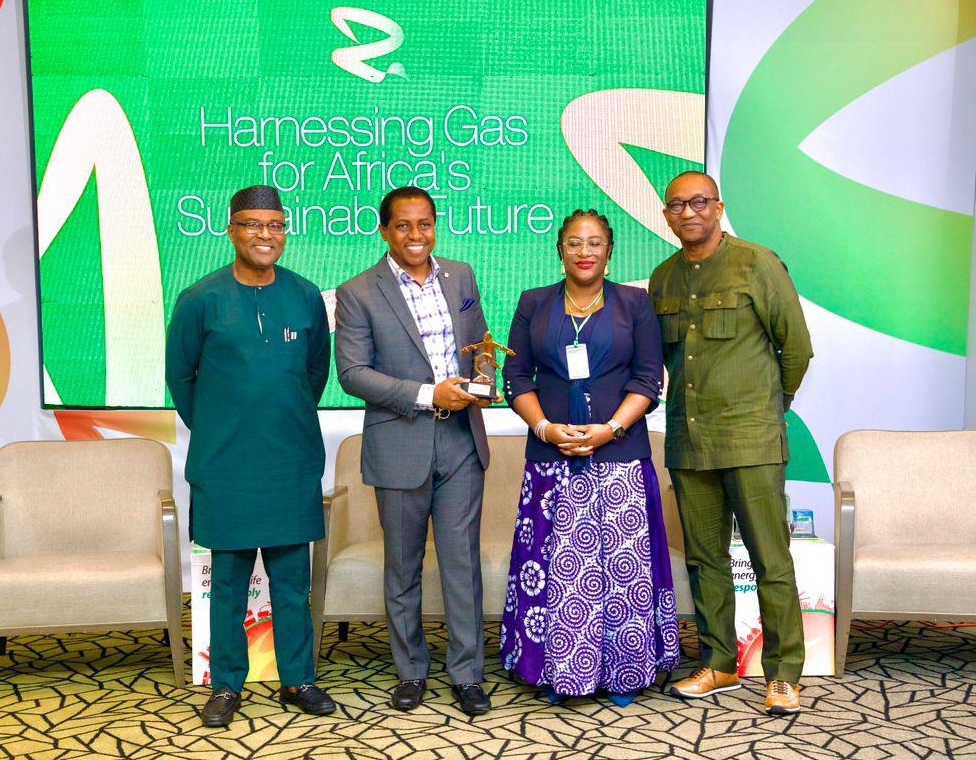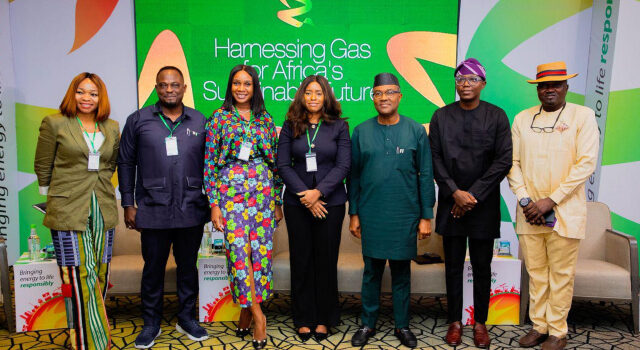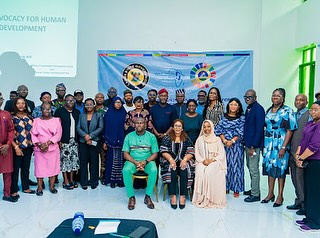From left to right: Abel Nsa, Senior Technical Assistant to the Hon. Minister of State Petroleum Resources (Gas); Bethel Obioma, Head, Corporate Communications, Sahara Group; Ejiro Gray, Director, Governance & Sustainability, Sahara Group; Dr. Anthony Youdeowei, Managing Director, Sahara Power Group during the Asharami Square event themed ‘Harnessing Gas for Africa’s Sustainable Future’, today in Lagos.
“Africa must start its own narratives and focus on its energy security”, says Ejiro Gray, Director of Sustainability of Sahara Group.
Ms Gray stated this at the second edition of Asharami Square —an annual platform aimed at promoting sustainability through effective media advocacy. With this year’s theme as “Harnessing Gas for Africa’s Sustainable Future”, Gray delivered a thought-provoking presentation on the urgent need for Africa to develop its gas resources to meet growing domestic demand and defend against external pressures.
Africa Must Build from Within
Gray warned of geopolitical shifts, opining that declining access to foreign aid and uncertain foreign partnerships mean Africa must build resilience from within. She urged the Nigerian Energy structure as well as those of Africa to reassess its gas infrastructure and prioritize local development over external dependency:
“We need to look inwards, and we need to do it fast.”
Gas and Renewables: Complementary, Not Competing
Echoing demographic realities, Gray highlighted Africa’s rising energy requirements:
- Population projected to double by 2050, with significant rural-to-urban migration.
- Currently, 600 million Africans remain without reliable power access.
She emphasized that this vast energy gap necessitates a dual approach. “The sky is actually large enough for both renewable energy and gas to thrive.” In her view, renewables and natural gas should work in concert—gas to improve energy security and power clean cooking, and renewables to support long-term sustainability.
Gas: Catalyst for Social & Economic Development
Gray noted Nigeria’s gas reserves remain largely untapped, despite its potential. “What are we doing with our gas? We haven’t really optimized it.”
She underscored gas’s role as:
- A financial engine for industrial growth
- A tool for economic empowerment
- A cleaner energy substitute to reduce dependence on biomass, improving public health and environmental outcomes
Infrastructure and Policy Barriers
Despite the strong case for gas, Gray flagged critical obstacles:
- Infrastructure gap: Nigeria currently has only 7,000 km of gas pipelines—far too little for its needs.
- Security concerns deter vital funding posing grave investment risks
- Policymakers must balance satisfying local energy demand and capturing international revenue.
A Positive Path Forward
Despite these challenges, Gray expressed cautious optimism. She noted that Africa is making strides on gas infrastructure and policy, noting that projects like the Ajaokuta–Kaduna–Kano (AKK) pipeline and domestic gas-to-power initiatives are “forging ahead.”
Ejiro Gray, a globally recognized governance and sustainability expert presented a clear message: Africa can no longer rely on external goodwill—it must unleash its gas potential to ensure energy security, industrial growth, and social equity. With renewables and gas working in harmony, she believes the continent can power its future—from the inside out.







